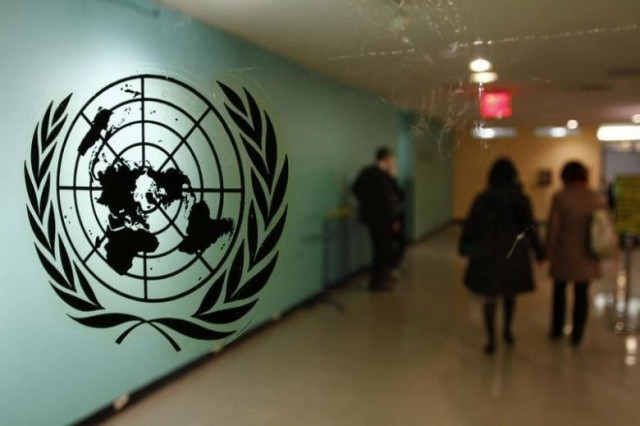UNHRC condemns Swedish incident
Passes Pakistan’s resolution against religious hatred

The UN Human Rights Council (UNHRC) on Wednesday condemned the recent desecration of the Holy Quran in the Swedish capital of Stockholm through a resolution brought forward by Pakistan and other Muslim countries.
The 47-member top rights body of the United Nations backed the Organisation of Islamic Cooperation (OIC) resolution on countering religious hatred by 28 votes in favour, with 12 against and seven abstentions.
The resolution, introduced by Pakistan, calls on the UN rights chief Volker Turk to publish a report on religious hatred and for states to review their laws and plug gaps that may “impede the prevention and prosecution of acts and advocacy of religious hatred”.
Besides the Muslim countries, Argentina, China, Cuba, India, South Africa, Ukraine and Vietnam backed the resolution. However, Britain, the United States, France and Germany, plus Costa Rica and Montenegro, voted against it.
The vote’s outcome marks a major defeat for Western countries at a time when the OIC has an unprecedented clout in the council – the only organisation made up of governments to protect human rights worldwide.
The Western states cited fear of too much encroachment on free speech as the reason for not backing the resolution.
US Ambassador Michele Taylor said that with more time and discussion, a consensus could have been reached.
While speaking for the OIC, Pakistan’s Ambassador Khalil Hashmi stressed that the resolution was not looking to curtail free speech, but had been aimed at striking a prudent balance. He regretted that some countries lacked political, legal, and moral courage.
“The opposition of a few in the room has emanated from their unwillingness to condemn the public desecration of the Holy Quran. They lack political, legal, and moral courage,” Hashmi told the council.
“Some states have chosen to abdicate their responsibility to prevent and counter the scourge of religious hatred. A message has been sent to billions of people of faith across the world that their commitment to prevent religious hatred is merely a lip service.”
The wording of the resolution condemns all manifestations of religious hatred, including “public and premeditated acts of desecration of the Holy Quran”, and underscores the need for holding those responsible to account.
It urges states to adopt laws to “address, prevent, and prosecute acts and advocacy of religious hatred that constitute incitement, discrimination, hostility or violence”.
It also asks Turk to identify gaps in countries’ laws in light of the resolution.
The US ambassador said that their concerns were not taken seriously. “I’m truly heartbroken that this council was unable to speak with a unanimous voice today in condemning what we all agree are deplorable acts of anti-Muslim hatred,” she added.
China’s Ambassador Chen Xu told the council that Islamophobia was on the rise. “These [Western] countries have done nothing to implement their professed respect for the protection of freedom of religious belief.”
Benin, Chile, Mexico, Nepal and Paraguay were among the abstentions. Paraguay’s Ambassador Marcelo Scappini Ricciardi said that a resolution which all countries could back was “clearly” possible.
“If we cannot agree on such an essential topic, that does not show us in a good light,” he said. Chile’s Ambassador Claudia Fuentes Julio added: “Some of its provisions would seek to limit freedom of expression.”



















COMMENTS
Comments are moderated and generally will be posted if they are on-topic and not abusive.
For more information, please see our Comments FAQ